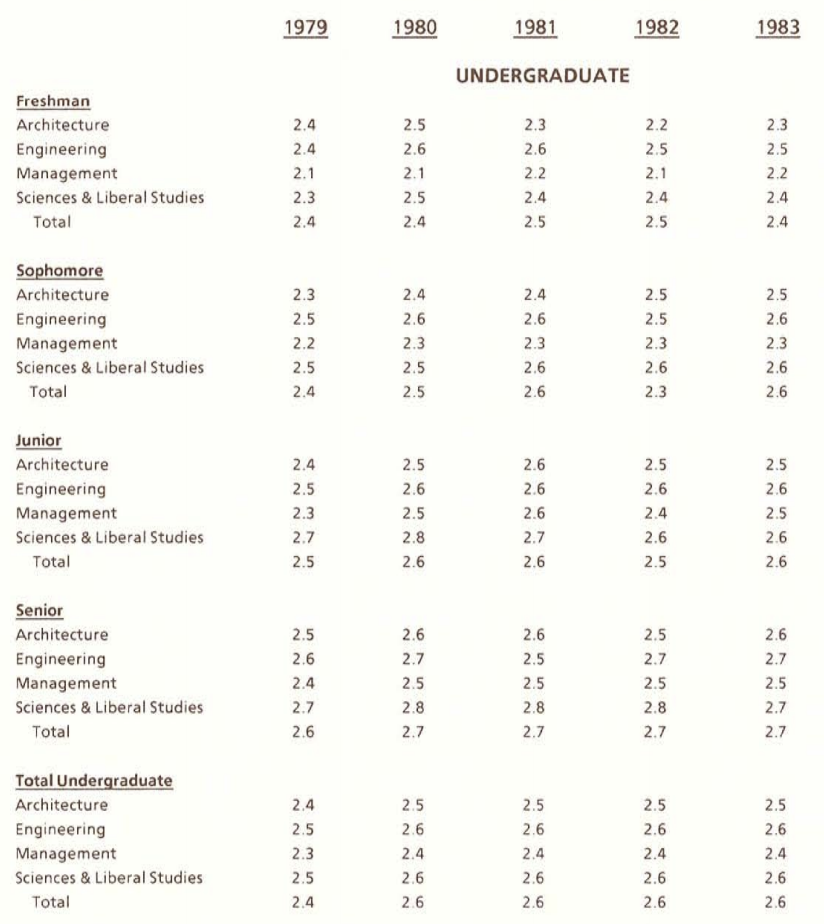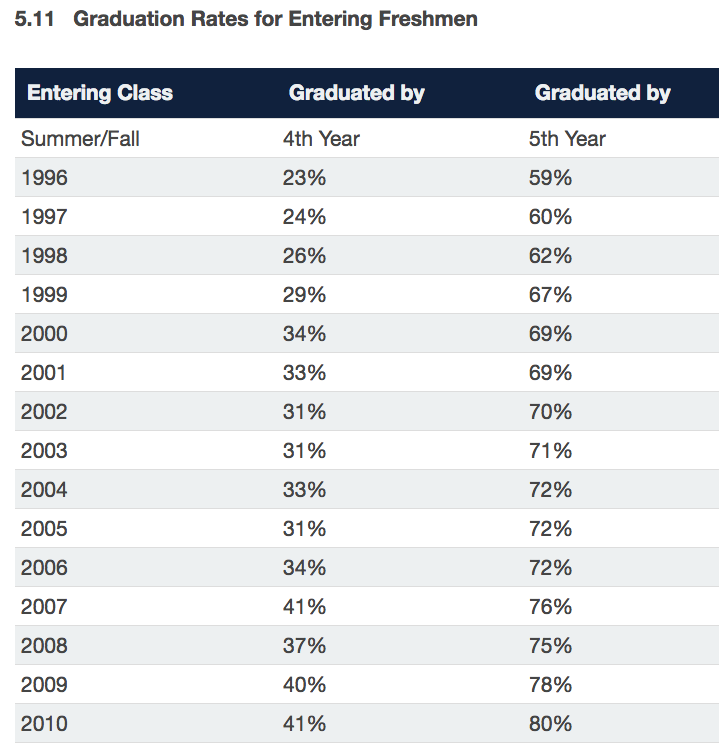Deleted member 2897
Guest
The average SAT score during that period also increased from 1232 to a 1375. Now it is a 1450.
Where I do think they are no longer trying to shaft the student, your comment "the entire place has gotten a lot easier to stay in" basing it purely on the graduation rate is an overly simplified observation and missing the whole picture. It is easier to stay in if you are a lot smarter. It is also easier to stay in when you are given help anytime you want it. But you still have to do the work and earn it. It is not given to you and the actual work load is most definitely NOT easier.
Did you go there? I had many professors where they had a set grade curve they went to. It was like 15% A, 30% B, 35% C, 15% D, 5% F. This is just an illustration. So it didn’t matter if the class was all 1600s - they hit their curve. There has also been a ton of changes to the SAT over the years too. I’m not doing a good job of making my point but hopefully that curve illustration helps. The class could be 1600s or 1200s and it wouldn’t matter.


